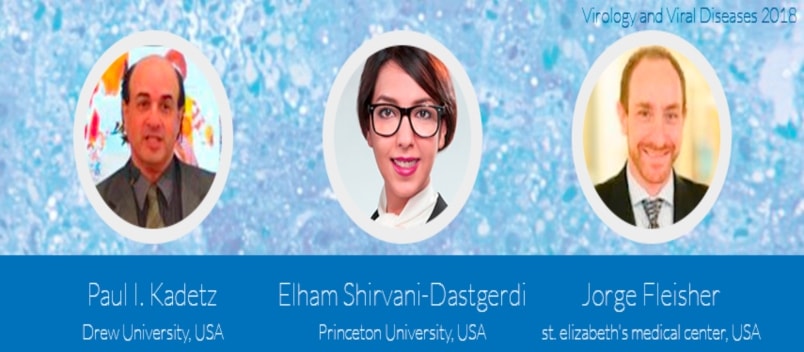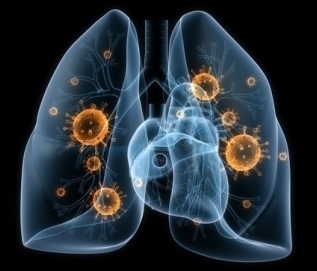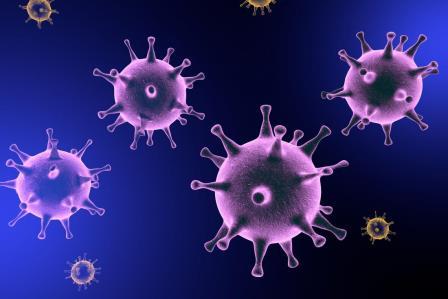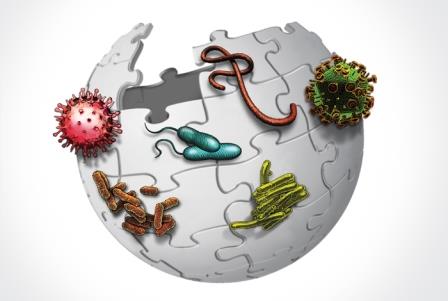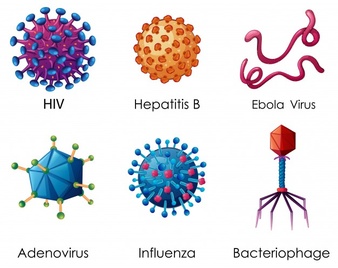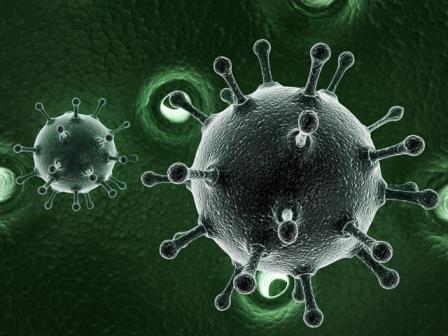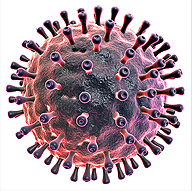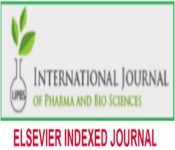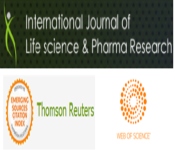Theme: Advanced Research and Emerging Issues in the Field of Virology
Mail us at: virology@annualamericacongress.org
Virology and Viral Diseases 2018
- Virology & Viral Diseases Conference 2018:
- Sessions/Tracks
- Market Analysis
- Why to attend?
- Call for abstracts
- Travel Guide & Visa Information
- Pre-Conference Workshop Invitation
- VISA Information For Delegates
Conference Series LLC Ltd invites all the participants from all over the world to attend the 13th World Congress on Virology, Infections and Outbreaks during December 05-06, 2018 at Vancouver, Canada which includes keynote presentations, Oral talks, Poster presentations and Exhibitions.
For more details download our Brochure Here
To Check the Reviews about our organization Click Here
Virology and Viral Diseases 2018 aims to bring together leading academic scientists, researchers and research scholars to exchange and share their experiences and research results on all aspects of virology & Infectious Diseases. It also provides a premier interdisciplinary platform for researchers, practitioners and educators to present and discuss the most recent innovations, trends, and concerns as well as practical challenges encountered and solutions adopted in the fields of virology & Infectious Diseases.
All honorable authors are kindly encouraged to contribute to and help shape the conference through submissions of their research abstracts, papers and e-posters in all areas of virology & Infectious Diseases are cordially invited for presentation at the conference.
Virology and Viral Diseases 2018 is anticipating participants from 40 and more countries across the globe and the two day conference will provoke plenary sessions, Keynote speeches, Poster, and Oral presentations. This program provides two days of robust discussions on recent advancements and new strategies for development of new materials for global requirements.
Get connected on Facebook, twitter, LinkedIn for latest updates.
We would also like to bring to your kind notice that we have 300+ journals where you can publish your full length manuscripts at discounted price. If you are interested please contact us at viraldiseases@annualamericacongress.org for further details.
Our pleasure to meet you in upcoming event…!!!
Details of Virology Conference 2018 in Canada:
| Conference Name | Place | Date |
|---|---|---|
| Virology Conference 2018 | Vancouver, Canada | December 05-06, 2018 |
13th World Congress on Virology and Viral Diseases conference (Virology and Viral Diseases 2018) will be held during December 3-4, 2018 at Chicago, Illinois, USA. The principle focal point of world congress Virology and Viral Diseases 2018 is on the current advances over the range of Virology and irresistible ailments look into from fundamental sciences to general wellbeing. Gathering features will be General virology; Viruses and Tumors ;Viral the study of disease transmission; Deadly popular sicknesses ;Clinical and Neuro virology; Molecular virology; Pediatric Virology; Viral immunology; Retroviology; Agriculture and Plant Virology; Veterinary Virology; Current Research in Virology; Pharmaceutical mycology; Mycotoxins and Mushrooms; Mycology and Ecology; Medical and Clinical Mycology; Environmental and Applied Mycology; Veterinary Mycology; Mycotoxicoses and mycoses; Mycoscience; Mycologia and mycopathologia, Bacteriology, parasitology, contagious infections, Vaccines and inoculation.
Clinical virology is a branch of medicine which deals with isolating and characterizing several viruses that are responsible for human diseases. It mainly deals with cell cultures, serological, biochemical and molecular studies. This field is very useful in knowing the epidemiology and spreading of viral diseases. By knowing the modes of transmission, effective treatment strategies can be invented.
Recommended Conferences: Virology Conferences | Clinical Virology Conferences | Microbiology Conferences | Virology Congress | Infectious Diseases Conferences | Clinical Microbiology Conferences | Diagnostic Microbiology Conferences | Virology Meetings | HIV/AIDS Conferences | Immunology Conferences | Influenza Conferences | Viral Hepatitis Conference | Emerging Infectious Diseases Conferences
Related Conferences:
11th International Virology Summit, July 01-02, 2019 Valencia, Spain ; 12th World Congress on Virology and Infectious Diseases, March 13-14, 2019 Singapore ; World Congress on Virology, November 19-20, 2018 Orlando, USA; 2nd World congress on Virology, March 11-12, 2019, London, UK; International Conference on Virology, November 29-30, 2018, Valencia, Spain; 3rd Global Summit on Virology, August 21-23, 2017, Barcelona, Spain; 12th Edition of International Conference on Infectious Diseases, April 22 -23, 2019, Rome, Italy; 4th Annual Congress on Infectious Diseases, August 29-30, 2018 Boston, Massachusetts, USA; 2nd International Conference on Worldwide Infectious Diseases, December 03-04, 2018, Madrid, Spain; 10th Euro-Global Conference on Infectious Diseases, September 27-29, 2018, Rome, Italy; International Conference on Bacteriology and Infectious Diseases, June 21-22, 2019 in Osaka, Japan
Virus is the pathogenic microbe that causes infections in human body. Virions are the virus particles which are consisted of two parts such as genetic material and protein coat. Viruses mainly affect the human immune system of the human body. Hepatitis virus is the common virus that degenerates the immunity of the body. Virulence is the capacity of the virus to infect the human system. Vaccination helps in preventing the infections caused by virus, as it produces the antibodies that are necessary in defense mechanism. The most common and well know lethal disease caused by human immune deficiency virus is AIDS.
Recommended Conferences: Virology Conferences | Clinical Virology Conferences | Microbiology Conferences | Virology Congress | Infectious Diseases Conferences | Clinical Microbiology Conferences | Diagnostic Microbiology Conferences | Virology Meetings | HIV/AIDS Conferences | Immunology Conferences | Influenza Conferences | Viral Hepatitis Conference | Emerging Infectious Diseases Conferences
Related Conferences:
11th International Virology Summit, July 01-02, 2019 Valencia, Spain ; 12th World Congress on Virology and Infectious Diseases, March 13-14, 2019 Singapore ; World Congress on Virology, November 19-20, 2018 Orlando, USA; 2nd World congress on Virology, March 11-12, 2019, London, UK; International Conference on Virology, November 29-30, 2018, Valencia, Spain; 3rd Global Summit on Virology, August 21-23, 2017, Barcelona, Spain; 12th Edition of International Conference on Infectious Diseases, April 22 -23, 2019, Rome, Italy; 4th Annual Congress on Infectious Diseases, August 29-30, 2018 Boston, Massachusetts, USA; 2nd International Conference on Worldwide Infectious Diseases, December 03-04, 2018, Madrid, Spain; 10th Euro-Global Conference on Infectious Diseases, September 27-29, 2018, Rome, Italy; International Conference on Bacteriology and Infectious Diseases, June 21-22, 2019 in Osaka, Japan
Session on Respiratory Viral Infections
Respiratory tract infections mainly affect the nose and throat. This can also be caused by any of the other several different viruses. The most common respiratory tract infections include the common cold and influenza. The most commonly detected viruses are respiratory syncytial virus, rhinovirus and the influenza virus. Doctors often refer to these as upper respiratory infections because they cause symptoms mainly in the parts of nose and throat. In small children, viruses also commonly cause infections of the lower respiratory tract the windpipe, airways, and lungs. These infections include croup, bronchiolitis, and pneumonia. Children sometimes have infections involving both the upper and lower respiratory tracts. In children, rhinoviruses, influenza viruses, parainfluenza viruses, respiratory syncytial virus, enter viruses, and certain strains of adenovirus are the main causes of viral respiratory infections.
Recommended Conferences: Virology Conferences | Clinical Virology Conferences | Microbiology Conferences | Virology Congress | Infectious Diseases Conferences | Clinical Microbiology Conferences | Diagnostic Microbiology Conferences | Virology Meetings | HIV/AIDS Conferences | Immunology Conferences | Influenza Conferences | Viral Hepatitis Conference | Emerging Infectious Diseases Conferences
Related Conferences:
11th International Virology Summit, July 01-02, 2019 Valencia, Spain ; 12th World Congress on Virology and Infectious Diseases, March 13-14, 2019 Singapore ; World Congress on Virology, November 19-20, 2018 Orlando, USA; 2nd World congress on Virology, March 11-12, 2019, London, UK; International Conference on Virology, November 29-30, 2018, Valencia, Spain; 3rd Global Summit on Virology, August 21-23, 2017, Barcelona, Spain; 12th Edition of International Conference on Infectious Diseases, April 22 -23, 2019, Rome, Italy; 4th Annual Congress on Infectious Diseases, August 29-30, 2018 Boston, Massachusetts, USA; 2nd International Conference on Worldwide Infectious Diseases, December 03-04, 2018, Madrid, Spain; 10th Euro-Global Conference on Infectious Diseases, September 27-29, 2018, Rome, Italy; International Conference on Bacteriology and Infectious Diseases, June 21-22, 2019 in Osaka, Japan
Viral immunology is the study of viral infections and immune responses towards viral infections which can cause deleterious effect on the functions of the cells. It includes both DNA and RNA viral infections. Viruses are strongly immunogenic and induces 2 types of immune responses; humoral and cellular. The repertoire of specificities of T and B cells are formed by rearrangements and somatic mutations. T and B cells do not generally recognize the same epitopes present on the same virus. B cells see the free unaltered proteins in their native 3-D conformation whereas T cells usually see the Ag in a denatured form in conjunction with MHC molecules. The characteristics of the immune reaction to the same virus may differ in different individuals depending on their genetic constitutions.
Humoral response is responsible for blocking the infectivity of the virus (neutralization). Those of the IgM and IgG class are especially relevant for defense against viral infections accompanied by viraemia, whereas those of the IgA class are important in infections acquired through a mucosa. In contrast, the cellular response kills the virus-infected cells expressing viral proteins on their surfaces, such as the glycoproteins of enveloped viruses and sometimes core proteins of these viruses.
Recommended Conferences: Virology Conferences | Clinical Virology Conferences | Microbiology Conferences | Virology Congress | Infectious Diseases Conferences | Clinical Microbiology Conferences | Diagnostic Microbiology Conferences | Virology Meetings | HIV/AIDS Conferences | Immunology Conferences | Influenza Conferences | Viral Hepatitis Conference | Emerging Infectious Diseases Conferences
Related Conferences:
11th International Virology Summit, July 01-02, 2019 Valencia, Spain ; 12th World Congress on Virology and Infectious Diseases, March 13-14, 2019 Singapore ; World Congress on Virology, November 19-20, 2018 Orlando, USA; 2nd World congress on Virology, March 11-12, 2019, London, UK; International Conference on Virology, November 29-30, 2018, Valencia, Spain; 3rd Global Summit on Virology, August 21-23, 2017, Barcelona, Spain; 12th Edition of International Conference on Infectious Diseases, April 22 -23, 2019, Rome, Italy; 4th Annual Congress on Infectious Diseases, August 29-30, 2018 Boston, Massachusetts, USA; 2nd International Conference on Worldwide Infectious Diseases, December 03-04, 2018, Madrid, Spain; 10th Euro-Global Conference on Infectious Diseases, September 27-29, 2018, Rome, Italy; International Conference on Bacteriology and Infectious Diseases, June 21-22, 2019 in Osaka, Japan
Vaccines that are developed from viruses are viral vaccines. Viral vaccines contain either inactivated viruses or attenuated viruses. One of the most common examples of viral vaccine is MMR (mumps, measles and rubella) vaccine. Inactivated or killed viral vaccines contain viruses, which have lost their ability to replicate and in turn cause disease. The first human vaccines against viruses were based using weaker or attenuated viruses to generate immunity. The smallpox vaccine used cowpox, a poxvirus that was similar enough to smallpox to protect against it but usually didn't cause serious illness. Rabies was the first virus attenuated in a lab to create a vaccine for humans.
Recommended Conferences: Virology Conferences | Clinical Virology Conferences | Microbiology Conferences | Virology Congress | Infectious Diseases Conferences | Clinical Microbiology Conferences | Diagnostic Microbiology Conferences | Virology Meetings | HIV/AIDS Conferences | Immunology Conferences | Influenza Conferences | Viral Hepatitis Conference | Emerging Infectious Diseases Conferences
Related Conferences:
11th International Virology Summit, July 01-02, 2019 Valencia, Spain ; 12th World Congress on Virology and Infectious Diseases, March 13-14, 2019 Singapore ; World Congress on Virology, November 19-20, 2018 Orlando, USA; 2nd World congress on Virology, March 11-12, 2019, London, UK; International Conference on Virology, November 29-30, 2018, Valencia, Spain; 3rd Global Summit on Virology, August 21-23, 2017, Barcelona, Spain; 12th Edition of International Conference on Infectious Diseases, April 22 -23, 2019, Rome, Italy; 4th Annual Congress on Infectious Diseases, August 29-30, 2018 Boston, Massachusetts, USA; 2nd International Conference on Worldwide Infectious Diseases, December 03-04, 2018, Madrid, Spain; 10th Euro-Global Conference on Infectious Diseases, September 27-29, 2018, Rome, Italy; International Conference on Bacteriology and Infectious Diseases, June 21-22, 2019 in Osaka, Japan
Session on Emerging Viral Diseases
Viruses quickly adapt to and exploit the varying conditions because they have polymerase enzyme that helps in viral replication. Emerging viral disease is a major threat to global health. Due to rapid mutation and adaptation to changing environment several new viral diseases causing human illness.Emerging viral diseases are a major threat to human and veterinary public health such as Ebola virus in Africa, along with HIV (human immunodeficiency virus), several influenza subtypes, and MERS (Middle East respiratory syndrome) coronaviruses have underscored the urgency of understanding factors influencing viral disease emergence and spreading world-wide. The world's current leading infectious killer, HIV, has caused an estimated 36 million deaths since the first cases were reported in 1981.
Recommended Conferences: Virology Conferences | Clinical Virology Conferences | Microbiology Conferences | Virology Congress | Infectious Diseases Conferences | Clinical Microbiology Conferences | Diagnostic Microbiology Conferences | Virology Meetings | HIV/AIDS Conferences | Immunology Conferences | Influenza Conferences | Viral Hepatitis Conference | Emerging Infectious Diseases Conferences
Related Conferences:
11th International Virology Summit, July 01-02, 2019 Valencia, Spain ; 12th World Congress on Virology and Infectious Diseases, March 13-14, 2019 Singapore ; World Congress on Virology, November 19-20, 2018 Orlando, USA; 2nd World congress on Virology, March 11-12, 2019, London, UK; International Conference on Virology, November 29-30, 2018, Valencia, Spain; 3rd Global Summit on Virology, August 21-23, 2017, Barcelona, Spain; 12th Edition of International Conference on Infectious Diseases, April 22 -23, 2019, Rome, Italy; 4th Annual Congress on Infectious Diseases, August 29-30, 2018 Boston, Massachusetts, USA; 2nd International Conference on Worldwide Infectious Diseases, December 03-04, 2018, Madrid, Spain; 10th Euro-Global Conference on Infectious Diseases, September 27-29, 2018, Rome, Italy; International Conference on Bacteriology and Infectious Diseases, June 21-22, 2019 in Osaka, Japan
Antiviral drugs are medication used specifically for treating viral infections. Like antibiotics for bacteria, specific antivirals are used for specific viruses. Unlike most antibiotics, antiviral drugs do not destroy their target pathogen; instead they inhibit their development.Antiviral drugs are one type of antimicrobials, a larger group which also includes antibiotic (also termed antibacterial), antifungal and antiparasitic drugs. They are relatively harmless to the host, and therefore can be used to treat infections. They should be distinguished from viricides, which are not medication but deactivate or destroy virus particles, either inside or outside the body. Antivirals also can be found in essential oils of some herbs, such as eucalyptus oil and its constituents.Most of the antiviral drugs now available are designed to help deal with HIV, herpes viruses, the hepatitis B and C viruses, which can cause liver cancer, and influenza A and B viruses.
The general idea behind modern antiviral drug design is to identify viral proteins, or parts of proteins, that can be disabled. These "targets" should generally be as unlike any proteins or parts of proteins in humans as possible, to reduce the likelihood of side effects. The targets should also be common across many strains of a virus, or even among different species of virus in the same family, so a single drug will have broad effectiveness.Almost all anti-microbials, including anti-virals, are subject to drug resistance as the pathogens mutate over time.
Recommended Conferences: Virology Conferences | Clinical Virology Conferences | Microbiology Conferences | Virology Congress | Infectious Diseases Conferences | Clinical Microbiology Conferences | Diagnostic Microbiology Conferences | Virology Meetings | HIV/AIDS Conferences | Immunology Conferences | Influenza Conferences | Viral Hepatitis Conference | Emerging Infectious Diseases Conferences
Related Conferences:
11th International Virology Summit, July 01-02, 2019 Valencia, Spain ; 12th World Congress on Virology and Infectious Diseases, March 13-14, 2019 Singapore ; World Congress on Virology, November 19-20, 2018 Orlando, USA; 2nd World congress on Virology, March 11-12, 2019, London, UK; International Conference on Virology, November 29-30, 2018, Valencia, Spain; 3rd Global Summit on Virology, August 21-23, 2017, Barcelona, Spain; 12th Edition of International Conference on Infectious Diseases, April 22 -23, 2019, Rome, Italy; 4th Annual Congress on Infectious Diseases, August 29-30, 2018 Boston, Massachusetts, USA; 2nd International Conference on Worldwide Infectious Diseases, December 03-04, 2018, Madrid, Spain; 10th Euro-Global Conference on Infectious Diseases, September 27-29, 2018, Rome, Italy; International Conference on Bacteriology and Infectious Diseases, June 21-22, 2019 in Osaka, Japan
Session on Epidemiology of Viral Diseases
Epidemiology is the study of the determinants, dynamics and distribution of diseases in the population. Viral epidemiology is the branch of medical science that deals with the transmission and control of virus infections in humans. Transmission of viruses can be vertical, which means from mother to child, or horizontal, which means from person to person. Examples of vertical transmission include hepatitis B virus and HIV, where the baby is born already infected with the virus. Another, rarer, example is the varicella zoster virus, which, although causing relatively mild infections in humans, can be fatal to the foetus and newborn baby.
Epidemiology is used to break the chain of infection in populations during outbreaks of viral diseases. Control measures are used that are based on knowledge of how the virus is transmitted. It is important to find the source, or sources, of the outbreak and to identify the virus. Once the virus has been identified, the chain of transmission can sometimes be broken by vaccines. When vaccines are not available, sanitation and disinfection can be effective. Often, infected people are isolated from the rest of the community, and those that have been exposed to the virus are placed in quarantine. Most viral infections of humans and other animals have incubation periods during which the infection causes no signs or symptoms. Incubation periods for viral diseases range from a few days to weeks, but are known for most infections.
Recommended Conferences: Virology Conferences | Clinical Virology Conferences | Microbiology Conferences | Virology Congress | Infectious Diseases Conferences | Clinical Microbiology Conferences | Diagnostic Microbiology Conferences | Virology Meetings | HIV/AIDS Conferences | Immunology Conferences | Influenza Conferences | Viral Hepatitis Conference | Emerging Infectious Diseases Conferences
Related Conferences:
11th International Virology Summit, July 01-02, 2019 Valencia, Spain ; 12th World Congress on Virology and Infectious Diseases, March 13-14, 2019 Singapore ; World Congress on Virology, November 19-20, 2018 Orlando, USA; 2nd World congress on Virology, March 11-12, 2019, London, UK; International Conference on Virology, November 29-30, 2018, Valencia, Spain; 3rd Global Summit on Virology, August 21-23, 2017, Barcelona, Spain; 12th Edition of International Conference on Infectious Diseases, April 22 -23, 2019, Rome, Italy; 4th Annual Congress on Infectious Diseases, August 29-30, 2018 Boston, Massachusetts, USA; 2nd International Conference on Worldwide Infectious Diseases, December 03-04, 2018, Madrid, Spain; 10th Euro-Global Conference on Infectious Diseases, September 27-29, 2018, Rome, Italy; International Conference on Bacteriology and Infectious Diseases, June 21-22, 2019 in Osaka, Japan
Session on Viral infection and their control
Viral infections are hard to treat because viruses live inside the body cells. They are "protected" from medicines, which usually move through bloodstream. Antibiotics do not work for viral infections. There are a few antiviral medicines available. Vaccines can help prevent you from getting many viral diseases. Viruses are capsular with genetic material inside .They are tiny, much smaller than bacteria .Viruses cause familiar infectious disease such as the common cold flu and warts. They also cause severe illness such as HIV, smallpox and hemorrhagic fevers. Antiviral drugs are used for the treatment of viral infection. An antiviral agent tends to narrow in spectrum and have limited efficacy. The drugs used for viral infection are Acyclovir (Zovirax), famciclovir (Famvir), and valacyclovir (Valtrex) are effective against herpesvirus, including herpes zoster and herpes genitalis. Drugs used for treatment for viral fever are Acetaminophen (Tylenolothers) or ibuprofen (Advil, motrin IB).
Recommended Conferences: Virology Conferences | Clinical Virology Conferences | Microbiology Conferences | Virology Congress | Infectious Diseases Conferences | Clinical Microbiology Conferences | Diagnostic Microbiology Conferences | Virology Meetings | HIV/AIDS Conferences | Immunology Conferences | Influenza Conferences | Viral Hepatitis Conference | Emerging Infectious Diseases Conferences
Related Conferences:
11th International Virology Summit, July 01-02, 2019 Valencia, Spain ; 12th World Congress on Virology and Infectious Diseases, March 13-14, 2019 Singapore ; World Congress on Virology, November 19-20, 2018 Orlando, USA; 2nd World congress on Virology, March 11-12, 2019, London, UK; International Conference on Virology, November 29-30, 2018, Valencia, Spain; 3rd Global Summit on Virology, August 21-23, 2017, Barcelona, Spain; 12th Edition of International Conference on Infectious Diseases, April 22 -23, 2019, Rome, Italy; 4th Annual Congress on Infectious Diseases, August 29-30, 2018 Boston, Massachusetts, USA; 2nd International Conference on Worldwide Infectious Diseases, December 03-04, 2018, Madrid, Spain; 10th Euro-Global Conference on Infectious Diseases, September 27-29, 2018, Rome, Italy; International Conference on Bacteriology and Infectious Diseases, June 21-22, 2019 in Osaka, Japan
- Ebola virus is one of the two members of a family of RNA viruses called the Filoviridae and of the order Mononegavirales. Ebola HF is an important emerging infection in central Africa and has received much attention in recent years owing to the documented high case-fatality rates (50% to 90%) associated with past outbreaks. Ebola virus was first identified in 1976 when two outbreaks of Ebola hemorrhagic fever (Ebola HF) occurred in northern Zaire (now the Democratic Republic of Congo) and southern Sudan. Out of five identified subtypes of Ebola virus, four of the five have caused disease in humans: Ebola-Zaire, Ebola-Sudan, Ebola-Ivory Coast and Ebola- Bundibugyo. The fifth, Ebola-Reston, has caused disease in nonhuman primates, but not in humans. The most highly virulent subtype of Ebola is Ebola Zaire whose mortality rate is 88%. About 1850 cases with over 1200 deaths have been documented since the Ebola virus was discovered and average fatality rate is 65%. Due to its highly pathogenic nature, scientific research conducted on Ebola must be conducted in a Biosafety Level 4 Lab (BSL-4). Immuno-Informatic Speculation and Computational Modeling of Novel MHC-II Human Leukocyte Antigenic Alleles to Elicit Vaccine for Ebola Virus.
- Zika has become one of the most worldwide spreading dangerous infection over the past decade because of its perpetual spread, initially in Asia-Pacific region, followed by its expeditious entry into the Western world. Zika virus was initially discovered in rhesus monkey in the forest of Uganda. But due to Unique genetic recombination in the genome of Zika virus has made the Zika infection more dangerous than the last one. Zika virus can be transmitted through both vector and non-vector means such as mosquito and sexual transmission. Eighty percent patient with Zika virus showed asymptomatic symptoms on the initial stage of disease onset but later symptoms can become severe.
- H1N1 is a flu virus. When it was first detected in 2009, it was called “swine flu” because the virus was similar to those found in pigs. The H1N1 virus is currently a seasonal flu virus found in humans. Although it also circulates in pigs, you cannot get it by eating properly handled and cooked pork or pork products.The 2009 swine flu outbreak (pandemic) was due to infection with the H1N1 virus and was first observed in Mexico. Symptoms of swine flu in humans are similar to most influenza infections: fever (100 F or greater), cough, nasal secretions, fatigue, and headache.
- Rabies is a viral disease that causes acute inflammation of the brain in humans and other warm-blooded animals. Rabies is transmitted to humans from other animals. Rabies can be transmitted when an infected animal scratches or bites another animal or human. Saliva from an infected animal can also transmit rabies if the saliva comes into contact with a mucous membrane of another animal or human. Most rabies cases in humans are the result of dog bites.
- Smallpox is a contagious infection unique to humans, caused by either of two virus variants, Variola major and Variola minor. Smallpox localized in a little body-fluid vessels of the skin and in the mouth and throat. In the skin it produced in a attribute maculopapular rash and, subsequent, increased fluid-filled blisters. V. major makes a more serious disease and has an overall mortality rate of 30–35%. V. minor causes a milder pattern of infection (also renowned as alastrim, cottonpox, milkpox, whitepox, and Cuban itch) with a morbidity rate of 1% of its victims. Long-term complications of V. major contamination encompass characteristic blemishes, routinely on the face, which occur in 65–85% of survivors. Blindness resulting from corneal ulceration and scarring, and limb deformities due to arthritis and osteomyelitis are less widespread difficulties, traced in about 2–5% of situations. Likely ways to become contaminated with smallpox include: extended face-to-face communication with someone who has smallpox (usually someone who currently has a smallpox rash). The smallpox virus is not powerful and is killed by sunlight and heat. In lab trials, 90% of aerosolized smallpox virus passes away within 24 hours; in the occurrence of sunlight.
- Dengue is transmitted by the bite of a mosquito infected with one of the four dengue virus serotypes. It is a febrile illness that affects infants, young children and adults with symptoms appearing 3-14 days after the infective bite.Dengue fever is a mosquito-borne disease that occurs in tropical and subtropical areas of the world. Mild dengue fever causes high fever, rash, and muscle and joint pain. A severe form of dengue fever, also called dengue hemorrhagic fever, can cause severe bleeding, a sudden drop in blood pressure (shock) and death.
- Influenza is commonly called as flu. It is caused by virus. Influenza starts with common cold. Avian influenza is the disease caused by birds. In general humans are not affected with this flu. However, people who are in direct contact with influenza affected poultry may develop the disease. Flu virus attacks the respiratory system of humans. Body pains, headaches, cough, high fever are some of the symptom of flu. This is a contagious disease which spread easily through air and water as means. Treatment involves medication with antiviral drugs helps in curing the lethal condition.
Recommended Conferences: Virology Conferences | Clinical Virology Conferences | Microbiology Conferences | Virology Congress | Infectious Diseases Conferences | Clinical Microbiology Conferences | Diagnostic Microbiology Conferences | Virology Meetings | HIV/AIDS Conferences | Immunology Conferences | Influenza Conferences | Viral Hepatitis Conference | Emerging Infectious Diseases Conferences
Related Conferences:
11th International Virology Summit, July 01-02, 2019 Valencia, Spain ; 12th World Congress on Virology and Infectious Diseases, March 13-14, 2019 Singapore ; World Congress on Virology, November 19-20, 2018 Orlando, USA; 2nd World congress on Virology, March 11-12, 2019, London, UK; International Conference on Virology, November 29-30, 2018, Valencia, Spain; 3rd Global Summit on Virology, August 21-23, 2017, Barcelona, Spain; 12th Edition of International Conference on Infectious Diseases, April 22 -23, 2019, Rome, Italy; 4th Annual Congress on Infectious Diseases, August 29-30, 2018 Boston, Massachusetts, USA; 2nd International Conference on Worldwide Infectious Diseases, December 03-04, 2018, Madrid, Spain; 10th Euro-Global Conference on Infectious Diseases, September 27-29, 2018, Rome, Italy; International Conference on Bacteriology and Infectious Diseases, June 21-22, 2019 in Osaka, Japan
Session on HIV, Diagnosis, Treatment and Current Research
- Human Immunodeficiency Virus (HIV) is an enveloped virus, belonging to the viral family Retroviridae. It is a highly evolved virus which has grasped the attention of all researchers with its special features like morphology, genetics and also by its emerging nature. The special feature of all retro viruses is the presence of an enzyme called Reverse transcriptase which plays major role in reverse transcription process. HIV enters the host body, damages immune system and will cause life-threatening opportunistic infections finally leads to AIDS (Acquired Immunodeficiency Syndrome).
- Diagnosis of Human Immunodeficiency Virus can be performed by various bio-chemical techniques. Body fluids like saliva, urine or serum of suspected individuals should be collected for the detection of RNA, antibodies or antigens. Diagnoses through antibody detection tests are specially designed biochemical techniques which are extremely accurate and inexpensive. ELISA and Western blot techniques are well-known antibody detection tests for the diagnosis of HIV.
- Antiretroviral treatment are medications that treat HIV. The drugs do not kill or cure the virus. However, when taken in combination they can prevent the growth of the virus. When the virus is slowed down, so is HIV disease. Antiretroviral drugs are referred to as ARV. Combination ARV therapy (cART) is referred to as highly active ART (HAART). Each type, or “class”, of ARV drugs attacks HIV in a different way. The first class of anti-HIV drugs was the nucleoside reverse transcriptase inhibitors (also called NRTIs or “nukes”.) These drugs block step 4, where the HIV genetic material is used to create DNA from RNA.
- Current Research deals with morphology and genetic alterations of HIV with main focus on infection, transmission, replication, reverse transcription, diagnosis, vaccine research, immunological reactions, prevention and treatment techniques, etc.
Recommended Conferences: Virology Conferences | Clinical Virology Conferences | Microbiology Conferences | Virology Congress | Infectious Diseases Conferences | Clinical Microbiology Conferences | Diagnostic Microbiology Conferences | Virology Meetings | HIV/AIDS Conferences | Immunology Conferences | Influenza Conferences | Viral Hepatitis Conference | Emerging Infectious Diseases Conferences
Related Conferences:
11th International Virology Summit, July 01-02, 2019 Valencia, Spain ; 12th World Congress on Virology and Infectious Diseases, March 13-14, 2019 Singapore ; World Congress on Virology, November 19-20, 2018 Orlando, USA; 2nd World congress on Virology, March 11-12, 2019, London, UK; International Conference on Virology, November 29-30, 2018, Valencia, Spain; 3rd Global Summit on Virology, August 21-23, 2017, Barcelona, Spain; 12th Edition of International Conference on Infectious Diseases, April 22 -23, 2019, Rome, Italy; 4th Annual Congress on Infectious Diseases, August 29-30, 2018 Boston, Massachusetts, USA; 2nd International Conference on Worldwide Infectious Diseases, December 03-04, 2018, Madrid, Spain; 10th Euro-Global Conference on Infectious Diseases, September 27-29, 2018, Rome, Italy; International Conference on Bacteriology and Infectious Diseases, June 21-22, 2019 in Osaka, Japan
Session on Hepatitis B Virus Infection
Hepatitis B is an infectious disease caused by the hepatitis B virus (HBV) that affects the liver. It can cause both acute and chronic infections. Many people have no symptoms during the initial infection. Some develop a rapid onset of sickness with vomiting, yellowish skin, tiredness, dark urine and abdominal pain. Hepatitis B virus (HBV) infection is one of the major public health concerns. About 2 billion infected individuals globally, 350 million chronic hepatitis and up to 1.2 million death annually due to HBV infection have been made the emergency of this infection inevitable. Approximately 75% of patients with chronic hepatitis live in Asia and Africa and up to 15-45% of HBV infected patients grows to cirrhosis, liver failure and hepatocellular carcinoma (HCC). More than 35% of Iranian populations have been exposed to HBV and more than 3% of the community estimated to be virus carriers.
Recommended Conferences: Virology Conferences | Clinical Virology Conferences | Microbiology Conferences | Virology Congress | Infectious Diseases Conferences | Clinical Microbiology Conferences | Diagnostic Microbiology Conferences | Virology Meetings | HIV/AIDS Conferences | Immunology Conferences | Influenza Conferences | Viral Hepatitis Conference | Emerging Infectious Diseases Conferences
Related Conferences:
11th International Virology Summit, July 01-02, 2019 Valencia, Spain ; 12th World Congress on Virology and Infectious Diseases, March 13-14, 2019 Singapore ; World Congress on Virology, November 19-20, 2018 Orlando, USA; 2nd World congress on Virology, March 11-12, 2019, London, UK; International Conference on Virology, November 29-30, 2018, Valencia, Spain; 3rd Global Summit on Virology, August 21-23, 2017, Barcelona, Spain; 12th Edition of International Conference on Infectious Diseases, April 22 -23, 2019, Rome, Italy; 4th Annual Congress on Infectious Diseases, August 29-30, 2018 Boston, Massachusetts, USA; 2nd International Conference on Worldwide Infectious Diseases, December 03-04, 2018, Madrid, Spain; 10th Euro-Global Conference on Infectious Diseases, September 27-29, 2018, Rome, Italy; International Conference on Bacteriology and Infectious Diseases, June 21-22, 2019 in Osaka, Japan
Session on Herpes Simplex Virus
Herpes simplex virus belongs to herpesvirus family. Herpes simplex virus is classified into 2 types: namely HSV-1 and HSV-2. This virus causes incurable disease herpes. HSV-1 is commonly known for cold sores whereas HSV-2 for genital herpes. Herpes simplex virus cannot be eradicated totally from the infected living being but can be treated to some extent partially. Symptoms of herpes simplex virus infection include watery blisters in the skin or mucous membranes of the mouth, lips, nose, or genitals. As neurotropic and neuroinvasive viruses, HSV-1 and -2 persist in the body by becoming latent and hiding from the immune system in the cell bodies of neurons. After the initial or primary infection, some infected people experience sporadic episodes of viral reactivation or outbreaks. In an outbreak, the virus in a nerve cell becomes active and is transported via the neuron's axon to the skin, where virus replication and shedding occur and cause new sores. It is one of the most common sexually transmitted infections.
Recommended Conferences: Virology Conferences | Clinical Virology Conferences | Microbiology Conferences | Virology Congress | Infectious Diseases Conferences | Clinical Microbiology Conferences | Diagnostic Microbiology Conferences | Virology Meetings | HIV/AIDS Conferences | Immunology Conferences | Influenza Conferences | Viral Hepatitis Conference | Emerging Infectious Diseases Conferences
Related Conferences:
11th International Virology Summit, July 01-02, 2019 Valencia, Spain ; 12th World Congress on Virology and Infectious Diseases, March 13-14, 2019 Singapore ; World Congress on Virology, November 19-20, 2018 Orlando, USA; 2nd World congress on Virology, March 11-12, 2019, London, UK; International Conference on Virology, November 29-30, 2018, Valencia, Spain; 3rd Global Summit on Virology, August 21-23, 2017, Barcelona, Spain; 12th Edition of International Conference on Infectious Diseases, April 22 -23, 2019, Rome, Italy; 4th Annual Congress on Infectious Diseases, August 29-30, 2018 Boston, Massachusetts, USA; 2nd International Conference on Worldwide Infectious Diseases, December 03-04, 2018, Madrid, Spain; 10th Euro-Global Conference on Infectious Diseases, September 27-29, 2018, Rome, Italy; International Conference on Bacteriology and Infectious Diseases, June 21-22, 2019 in Osaka, Japan
Viruses are also known to induce cancer in humans. The viruses that cause cancer are termed as oncovirus. Many of these viral oncogenes have been discovered and identified to cause cancer. The main viruses associated with human cancers are human papillomavirus, hepatitis B and hepatitis C virus, Epstein-Barr virus, human T-lymphotropic virus, Kaposi's sarcoma-associated herpesvirus (KSHV) and Merkel cell polyomavirus.
Recommended Conferences: Virology Conferences | Clinical Virology Conferences | Microbiology Conferences | Virology Congress | Infectious Diseases Conferences | Clinical Microbiology Conferences | Diagnostic Microbiology Conferences | Virology Meetings | HIV/AIDS Conferences | Immunology Conferences | Influenza Conferences | Viral Hepatitis Conference | Emerging Infectious Diseases Conferences
Related Conferences:
11th International Virology Summit, July 01-02, 2019 Valencia, Spain ; 12th World Congress on Virology and Infectious Diseases, March 13-14, 2019 Singapore ; World Congress on Virology, November 19-20, 2018 Orlando, USA; 2nd World congress on Virology, March 11-12, 2019, London, UK; International Conference on Virology, November 29-30, 2018, Valencia, Spain; 3rd Global Summit on Virology, August 21-23, 2017, Barcelona, Spain; 12th Edition of International Conference on Infectious Diseases, April 22 -23, 2019, Rome, Italy; 4th Annual Congress on Infectious Diseases, August 29-30, 2018 Boston, Massachusetts, USA; 2nd International Conference on Worldwide Infectious Diseases, December 03-04, 2018, Madrid, Spain; 10th Euro-Global Conference on Infectious Diseases, September 27-29, 2018, Rome, Italy; International Conference on Bacteriology and Infectious Diseases, June 21-22, 2019 in Osaka, Japan
Molecular virology is the study of viruses on a molecular level. Viruses are submicroscopic parasites that replicate inside host cells. They are able to successfully infect and parasitize all kinds of life forms- from microorganisms to plants and animals- and as a result viruses have more biological diversity than the rest of the bacterial, plant, and animal kingdoms combined. Studying this diversity is the key to a better understanding of how viruses interact with their hosts, replicate inside them, and cause diseases. Because viruses are critically dependent on their host cells and have co-evolved with them, studies of viruses have historically provided numerous insights into basic cellular biology. Viruses are also important vectors for gene therapy and vaccination, and viral gene products may have important research and clinical uses. Increased understanding of viruses has also revolutionized the treatment and prevention of disease, but the emergence of diseases such as AIDS, avian influenza, and SARS demonstrates that viral diseases remain an ongoing problem with staggering public health implications. In addition, viral-associated cancers are a leading cause of death, chronic viral diseases cause significant morbidity, and bioterrorism based on pathogenic viruses is a serious concern. Thus, the study of viruses will continue to provide important biological insights and suggest new strategies for coping with serious human diseases.
Recommended Conferences: Virology Conferences | Clinical Virology Conferences | Microbiology Conferences | Virology Congress | Infectious Diseases Conferences | Clinical Microbiology Conferences | Diagnostic Microbiology Conferences | Virology Meetings | HIV/AIDS Conferences | Immunology Conferences | Influenza Conferences | Viral Hepatitis Conference | Emerging Infectious Diseases Conferences
Related Conferences:
11th International Virology Summit, July 01-02, 2019 Valencia, Spain ; 12th World Congress on Virology and Infectious Diseases, March 13-14, 2019 Singapore ; World Congress on Virology, November 19-20, 2018 Orlando, USA; 2nd World congress on Virology, March 11-12, 2019, London, UK; International Conference on Virology, November 29-30, 2018, Valencia, Spain; 3rd Global Summit on Virology, August 21-23, 2017, Barcelona, Spain; 12th Edition of International Conference on Infectious Diseases, April 22 -23, 2019, Rome, Italy; 4th Annual Congress on Infectious Diseases, August 29-30, 2018 Boston, Massachusetts, USA; 2nd International Conference on Worldwide Infectious Diseases, December 03-04, 2018, Madrid, Spain; 10th Euro-Global Conference on Infectious Diseases, September 27-29, 2018, Rome, Italy; International Conference on Bacteriology and Infectious Diseases, June 21-22, 2019 in Osaka, Japan
In recent years viruses have been increasingly recognized as important causes of outbreaks of food borne disease. While in many countries viruses are now considered to be an extremely common cause of foodborne illness, they are rarely diagnosed as the analytical and diagnostic tools for such viruses are not widely available. However, much progress has been made recently in terms of the methodology available for detection and identification of viruses in both food and clinical samples.
Recommended Conferences: Virology Conferences | Clinical Virology Conferences | Microbiology Conferences | Virology Congress | Infectious Diseases Conferences | Clinical Microbiology Conferences | Diagnostic Microbiology Conferences | Virology Meetings | HIV/AIDS Conferences | Immunology Conferences | Influenza Conferences | Viral Hepatitis Conference | Emerging Infectious Diseases Conferences
Related Conferences:
11th International Virology Summit, July 01-02, 2019 Valencia, Spain ; 12th World Congress on Virology and Infectious Diseases, March 13-14, 2019 Singapore ; World Congress on Virology, November 19-20, 2018 Orlando, USA; 2nd World congress on Virology, March 11-12, 2019, London, UK; International Conference on Virology, November 29-30, 2018, Valencia, Spain; 3rd Global Summit on Virology, August 21-23, 2017, Barcelona, Spain; 12th Edition of International Conference on Infectious Diseases, April 22 -23, 2019, Rome, Italy; 4th Annual Congress on Infectious Diseases, August 29-30, 2018 Boston, Massachusetts, USA; 2nd International Conference on Worldwide Infectious Diseases, December 03-04, 2018, Madrid, Spain; 10th Euro-Global Conference on Infectious Diseases, September 27-29, 2018, Rome, Italy; International Conference on Bacteriology and Infectious Diseases, June 21-22, 2019 in Osaka, Japan
The potential usefulness of viral gene replacement therapy in human disease has been an exciting and extensively-studied topic in the field of skeletal muscle disease for the past 20 years. Unfortunately, while the strategy of replacing or supplementing copies of mutant gene is a straightforward concept, a number of complicating factors have been identified as gene therapy trials have progressed toward clinical studies. While some of these issues, including the immunological response to viral vectors, are issues that are encountered with all forms of gene therapy, the use of gene therapy in skeletal muscle also poses additional challenges for which treatment strategies need to be optimized. Despite these challenges, there has been substantial progress in recent years toward optimizing viral gene therapy for skeletal muscle disease in animal models, with an eye toward optimizing the safety and efficacy of viral gene therapy in humans. Skeletal muscle disorders represent considerable opportunities for investigators developing viral gene therapy strategies, due to the numerous monogenetic diseases of skeletal muscle, the clear and quantifiable clinical phenotypes, and the easy accessibility of muscle tissue. Mutations in the dystrophin gene predispose the myofiber membrane to contraction-induced membrane damage, resulting in inflammation, and myonecrosis, and progressive loss of functional muscle tissue. Several murine and canine models of dystrophinopathy have been used to study these diseases and evaluate potential therapies, including several viral gene therapy approaches. Viral gene therapy approaches have also been investigated for other disorders of skeletal muscle, including lysosomal storage disorders and congenital myopathies, and these studies have benefitted immensely from the pioneering work that was performed using dystrophinopathy models.
Recommended Conferences: Virology Conferences | Clinical Virology Conferences | Microbiology Conferences | Virology Congress | Infectious Diseases Conferences | Clinical Microbiology Conferences | Diagnostic Microbiology Conferences | Virology Meetings | HIV/AIDS Conferences | Immunology Conferences | Influenza Conferences | Viral Hepatitis Conference | Emerging Infectious Diseases Conferences
Related Conferences:
11th International Virology Summit, July 01-02, 2019 Valencia, Spain ; 12th World Congress on Virology and Infectious Diseases, March 13-14, 2019 Singapore ; World Congress on Virology, November 19-20, 2018 Orlando, USA; 2nd World congress on Virology, March 11-12, 2019, London, UK; International Conference on Virology, November 29-30, 2018, Valencia, Spain; 3rd Global Summit on Virology, August 21-23, 2017, Barcelona, Spain; 12th Edition of International Conference on Infectious Diseases, April 22 -23, 2019, Rome, Italy; 4th Annual Congress on Infectious Diseases, August 29-30, 2018 Boston, Massachusetts, USA; 2nd International Conference on Worldwide Infectious Diseases, December 03-04, 2018, Madrid, Spain; 10th Euro-Global Conference on Infectious Diseases, September 27-29, 2018, Rome, Italy; International Conference on Bacteriology and Infectious Diseases, June 21-22, 2019 in Osaka, Japan
The study of the viruses which infect nervous system is called Neuro virology. Viral infections of brain are a bit complicated to understand due to the various underlying reasons. One of the main reasons is that the virus acts in an unpredictable manner due to this much of the experiments carried out are based on testing the hypothesis which is a major drawback.
Viral infections of the brain are less common than any other infections because unlike other organ infections brain infections depend upon the breakdown and passage through the blood brain barrier which occurs very rarely. Viruses take advantage of such events and cause neurological problems through a number of mechanisms like causing cell lysis, inducing apoptosis or by creating secondary damage due to release of glutamate. Viruses such as rabies do not kill neurons but they alter cellular transcriptional pathways to express viral genes rather than neuronal genes, these results in neurons that no longer function as neurons, but look normal upon routine pathological examination making it difficult for the virologist to identify the virus. Due to all these reasons we need to have a complete understanding and knowledge of viruses and their makeup in order to identify and treat that infection.
Recommended Conferences: Virology Conferences | Clinical Virology Conferences | Microbiology Conferences | Virology Congress | Infectious Diseases Conferences | Clinical Microbiology Conferences | Diagnostic Microbiology Conferences | Virology Meetings | HIV/AIDS Conferences | Immunology Conferences | Influenza Conferences | Viral Hepatitis Conference | Emerging Infectious Diseases Conferences
Related Conferences:
11th International Virology Summit, July 01-02, 2019 Valencia, Spain ; 12th World Congress on Virology and Infectious Diseases, March 13-14, 2019 Singapore ; World Congress on Virology, November 19-20, 2018 Orlando, USA; 2nd World congress on Virology, March 11-12, 2019, London, UK; International Conference on Virology, November 29-30, 2018, Valencia, Spain; 3rd Global Summit on Virology, August 21-23, 2017, Barcelona, Spain; 12th Edition of International Conference on Infectious Diseases, April 22 -23, 2019, Rome, Italy; 4th Annual Congress on Infectious Diseases, August 29-30, 2018 Boston, Massachusetts, USA; 2nd International Conference on Worldwide Infectious Diseases, December 03-04, 2018, Madrid, Spain; 10th Euro-Global Conference on Infectious Diseases, September 27-29, 2018, Rome, Italy; International Conference on Bacteriology and Infectious Diseases, June 21-22, 2019 in Osaka, Japan
Skin infection is the major infection to the skin caused by bacteria, fungi, parasites and viruses. The major skin infectious diseases are impetigo, Staph infections, cellulitis etc. Skin infections can lead to skin inflammations such as infectious dermatitis. It is also a cause of various skin diseases that can ultimately lead to leprosy. Skin infections can be bacterial skin infections, fungal skin infections, viral skin infection etc. In case of ignorance these infections can spread from skin to blood stream.
Recommended Conferences: Virology Conferences | Clinical Virology Conferences | Microbiology Conferences | Virology Congress | Infectious Diseases Conferences | Clinical Microbiology Conferences | Diagnostic Microbiology Conferences | Virology Meetings | HIV/AIDS Conferences | Immunology Conferences | Influenza Conferences | Viral Hepatitis Conference | Emerging Infectious Diseases Conferences
Related Conferences:
11th International Virology Summit, July 01-02, 2019 Valencia, Spain ; 12th World Congress on Virology and Infectious Diseases, March 13-14, 2019 Singapore ; World Congress on Virology, November 19-20, 2018 Orlando, USA; 2nd World congress on Virology, March 11-12, 2019, London, UK; International Conference on Virology, November 29-30, 2018, Valencia, Spain; 3rd Global Summit on Virology, August 21-23, 2017, Barcelona, Spain; 12th Edition of International Conference on Infectious Diseases, April 22 -23, 2019, Rome, Italy; 4th Annual Congress on Infectious Diseases, August 29-30, 2018 Boston, Massachusetts, USA; 2nd International Conference on Worldwide Infectious Diseases, December 03-04, 2018, Madrid, Spain; 10th Euro-Global Conference on Infectious Diseases, September 27-29, 2018, Rome, Italy; International Conference on Bacteriology and Infectious Diseases, June 21-22, 2019 in Osaka, Japan
Session on Emerging Infectious Diseases
Emerging Infectious Diseases are caused by newly identified species or strains that may have evolved from a known infection or spread to a new population or area undergoing ecologic transformation, or be reemerging infections, like drug resistant tuberculosis. The incidence of emerging infectious disease has increased in the past 20 years. These are a significant burden on global economies and public health. Emerging infections account for at least 12% of all human pathogens. EIDs are caused by newly identified species or strains (e.g. Severe acute respiratory syndrome, HIV/AIDS) that may have evolved from a known infection (e.g. influenza) or spread to a new population (e.g. West Nile fever) or to an area undergoing ecologic transformation (e.g. Lyme disease), or be reemerging infections, like drug resistant tuberculosis. Nosocomial (hospital-acquired) infections, such as methicillin-resistant Staphylococcus aureus are emerging in hospitals and extremely problematic in that they are resistant to many antibiotics.
Recommended Conferences: Virology Conferences | Clinical Virology Conferences | Microbiology Conferences | Virology Congress | Infectious Diseases Conferences | Clinical Microbiology Conferences | Diagnostic Microbiology Conferences | Virology Meetings | HIV/AIDS Conferences | Immunology Conferences | Influenza Conferences | Viral Hepatitis Conference | Emerging Infectious Diseases Conferences
Related Conferences:
11th International Virology Summit, July 01-02, 2019 Valencia, Spain ; 12th World Congress on Virology and Infectious Diseases, March 13-14, 2019 Singapore ; World Congress on Virology, November 19-20, 2018 Orlando, USA; 2nd World congress on Virology, March 11-12, 2019, London, UK; International Conference on Virology, November 29-30, 2018, Valencia, Spain; 3rd Global Summit on Virology, August 21-23, 2017, Barcelona, Spain; 12th Edition of International Conference on Infectious Diseases, April 22 -23, 2019, Rome, Italy; 4th Annual Congress on Infectious Diseases, August 29-30, 2018 Boston, Massachusetts, USA; 2nd International Conference on Worldwide Infectious Diseases, December 03-04, 2018, Madrid, Spain; 10th Euro-Global Conference on Infectious Diseases, September 27-29, 2018, Rome, Italy; International Conference on Bacteriology and Infectious Diseases, June 21-22, 2019 in Osaka, Japan
Session on Diagnosis of Infectious Diseases
Infectious diseases are caused by several microorganisms. Different types of laboratory tests are useful for identification of microorganism are stained and examining, cultured, tested for antibodies to organism and testing for genetic material. Other sample tests like sputum, stool and swabs are also sent for testing. Drugs that are used in treatment are clindamycin, cipro oral, metronidazole, ciprofloxacin, tetracyclin, gentamycin, amphotericin B and many more. Infectious diseases are disorders caused by organisms such as bacteria, viruses, fungi or parasites. Many organisms live in and on our bodies. They are normally harmless or even helpful, but under certain conditions, some organisms may cause disease.
Recommended Conferences: Virology Conferences | Clinical Virology Conferences | Microbiology Conferences | Virology Congress | Infectious Diseases Conferences | Clinical Microbiology Conferences | Diagnostic Microbiology Conferences | Virology Meetings | HIV/AIDS Conferences | Immunology Conferences | Influenza Conferences | Viral Hepatitis Conference | Emerging Infectious Diseases Conferences
Related Conferences:
11th International Virology Summit, July 01-02, 2019 Valencia, Spain ; 12th World Congress on Virology and Infectious Diseases, March 13-14, 2019 Singapore ; World Congress on Virology, November 19-20, 2018 Orlando, USA; 2nd World congress on Virology, March 11-12, 2019, London, UK; International Conference on Virology, November 29-30, 2018, Valencia, Spain; 3rd Global Summit on Virology, August 21-23, 2017, Barcelona, Spain; 12th Edition of International Conference on Infectious Diseases, April 22 -23, 2019, Rome, Italy; 4th Annual Congress on Infectious Diseases, August 29-30, 2018 Boston, Massachusetts, USA; 2nd International Conference on Worldwide Infectious Diseases, December 03-04, 2018, Madrid, Spain; 10th Euro-Global Conference on Infectious Diseases, September 27-29, 2018, Rome, Italy; International Conference on Bacteriology and Infectious Diseases, June 21-22, 2019 in Osaka, Japan
Infectious diseases have a range of causes, and they can be found all over the world. These diseases are considered contagious or communicable, meaning that they can be passed from person to person. Therapy or treatment is the attempted remediation of a health problem, usually following a diagnosis. Infection control is the discipline concerned with preventing nosocomial or healthcare-associated infection, a practical (rather than academic) sub-discipline of epidemiology. It is an essential, though often underrecognized and undersupported, part of the infrastructure of health care. Infection control and hospital epidemiology are akin to public health practice, practiced within the confines of a particular health-care delivery system rather than directed at society as a whole.
Recommended Conferences: Virology Conferences | Clinical Virology Conferences | Microbiology Conferences | Virology Congress | Infectious Diseases Conferences | Clinical Microbiology Conferences | Diagnostic Microbiology Conferences | Virology Meetings | HIV/AIDS Conferences | Immunology Conferences | Influenza Conferences | Viral Hepatitis Conference | Emerging Infectious Diseases Conferences
Related Conferences:
11th International Virology Summit, July 01-02, 2019 Valencia, Spain ; 12th World Congress on Virology and Infectious Diseases, March 13-14, 2019 Singapore ; World Congress on Virology, November 19-20, 2018 Orlando, USA; 2nd World congress on Virology, March 11-12, 2019, London, UK; International Conference on Virology, November 29-30, 2018, Valencia, Spain; 3rd Global Summit on Virology, August 21-23, 2017, Barcelona, Spain; 12th Edition of International Conference on Infectious Diseases, April 22 -23, 2019, Rome, Italy; 4th Annual Congress on Infectious Diseases, August 29-30, 2018 Boston, Massachusetts, USA; 2nd International Conference on Worldwide Infectious Diseases, December 03-04, 2018, Madrid, Spain; 10th Euro-Global Conference on Infectious Diseases, September 27-29, 2018, Rome, Italy; International Conference on Bacteriology and Infectious Diseases, June 21-22, 2019 in Osaka, Japan
Session on Gastrointestinal infections
Infections of alimentary canal due to action of microbes are known as gastrointestinal infections. Many microbes such bacteria (E. coli, Staphylococcus, Salmonella, Shigella, Campylobacter, Clostridium), viruses, (Rotavirus, Adenoviruses, Parvoviruses, etc) and other parasites (Giardia, Entamoeba, Ascaris) causes infection in various parts of gut. Few common symptoms that arise due to infections are vomiting, diarrhea, abdominal cramping, etc. Rotavirus is the most common cause of viral gastroenteritis among children. Norovirus is the leading cause of viral gastroenteritis outbreaks. Other viruses that cause the stomach flu include adenovirus, calicivirus and astrovirus. Most cases of viral gastroenteritis clear on their own within 2 to 4 days, but dehydration may require medical treatment. Diagnosis of gastrointestinal infections is confirmed by various types of laboratory tests using culture or antigen detection from stool specimen. In some cases microbial resistance of E. coli, Salmonella, Clostridium difficile is tested using antibiotic susceptibility. A major outbreak of gastrointestinal infection is mainly seen in hospital environment.
Recommended Conferences: Virology Conferences | Clinical Virology Conferences | Microbiology Conferences | Virology Congress | Infectious Diseases Conferences | Clinical Microbiology Conferences | Diagnostic Microbiology Conferences | Virology Meetings | HIV/AIDS Conferences | Immunology Conferences | Influenza Conferences | Viral Hepatitis Conference | Emerging Infectious Diseases Conferences
Related Conferences:
11th International Virology Summit, July 01-02, 2019 Valencia, Spain ; 12th World Congress on Virology and Infectious Diseases, March 13-14, 2019 Singapore ; World Congress on Virology, November 19-20, 2018 Orlando, USA; 2nd World congress on Virology, March 11-12, 2019, London, UK; International Conference on Virology, November 29-30, 2018, Valencia, Spain; 3rd Global Summit on Virology, August 21-23, 2017, Barcelona, Spain; 12th Edition of International Conference on Infectious Diseases, April 22 -23, 2019, Rome, Italy; 4th Annual Congress on Infectious Diseases, August 29-30, 2018 Boston, Massachusetts, USA; 2nd International Conference on Worldwide Infectious Diseases, December 03-04, 2018, Madrid, Spain; 10th Euro-Global Conference on Infectious Diseases, September 27-29, 2018, Rome, Italy; International Conference on Bacteriology and Infectious Diseases, June 21-22, 2019 in Osaka, Japan
Session on Neonatal Infections
Newborns are particularly susceptible to certain diseases, much more so than older children and adults. Their new immune systems aren't adequately developed to fight the bacteria, viruses, and parasites that cause these infections. These infections may occur at delivery time and also from external sources after birth. In case of utero infection, infection may occur before birth consequences depend on time of infection, spontaneous abortion, premature birth. Common viral agents are herpes virus, hepatitis B, unless virus transmits transplacentally. Bacterial agents include streptococci, enteric gram negative organisms.
Recommended Conferences: Virology Conferences | Clinical Virology Conferences | Microbiology Conferences | Virology Congress | Infectious Diseases Conferences | Clinical Microbiology Conferences | Diagnostic Microbiology Conferences | Virology Meetings | HIV/AIDS Conferences | Immunology Conferences | Influenza Conferences | Viral Hepatitis Conference | Emerging Infectious Diseases Conferences
Related Conferences:
11th International Virology Summit, July 01-02, 2019 Valencia, Spain ; 12th World Congress on Virology and Infectious Diseases, March 13-14, 2019 Singapore ; World Congress on Virology, November 19-20, 2018 Orlando, USA; 2nd World congress on Virology, March 11-12, 2019, London, UK; International Conference on Virology, November 29-30, 2018, Valencia, Spain; 3rd Global Summit on Virology, August 21-23, 2017, Barcelona, Spain; 12th Edition of International Conference on Infectious Diseases, April 22 -23, 2019, Rome, Italy; 4th Annual Congress on Infectious Diseases, August 29-30, 2018 Boston, Massachusetts, USA; 2nd International Conference on Worldwide Infectious Diseases, December 03-04, 2018, Madrid, Spain; 10th Euro-Global Conference on Infectious Diseases, September 27-29, 2018, Rome, Italy; International Conference on Bacteriology and Infectious Diseases, June 21-22, 2019 in Osaka, Japan
Session on Gastrointestinal Infections
Diarrhea that is characterised by frequent and watery intestine movements is usually caused by canal infections, though it may return from different sicknesses or changes in diet. Germs like parasites, viruses, or microorganism all will cause canal (GI) infections. There are a colossal variety of microbes that cause change within the intestines. Microorganism (E. coli, Salmonella, Shigella, Campylobacter, Clostridium), viruses, and parasites will all cause malady within the intestines. Most of the time infections of the intestines end in diarrhoea or infectious disease, nausea, vomiting, and abdominal cramping. If the infection is within the gut symptoms embody watery diarrhoea or ejection. Infections within the intestine typically end in infectious disease. There are an enormous number of microbes that cause disease in the intestines. Bacteria (E. coli, Salmonella, Shigella, Campylobacter, Clostridium), viruses (Norwalk agent, Rotaviruses), and parasites (Giardia, Entamoeba, Ascaris) can all cause disease in the intestines.
Recommended Conferences: Virology Conferences | Clinical Virology Conferences | Microbiology Conferences | Virology Congress | Infectious Diseases Conferences | Clinical Microbiology Conferences | Diagnostic Microbiology Conferences | Virology Meetings | HIV/AIDS Conferences | Immunology Conferences | Influenza Conferences | Viral Hepatitis Conference | Emerging Infectious Diseases Conferences
Related Conferences:
11th International Virology Summit, July 01-02, 2019 Valencia, Spain ; 12th World Congress on Virology and Infectious Diseases, March 13-14, 2019 Singapore ; World Congress on Virology, November 19-20, 2018 Orlando, USA; 2nd World congress on Virology, March 11-12, 2019, London, UK; International Conference on Virology, November 29-30, 2018, Valencia, Spain; 3rd Global Summit on Virology, August 21-23, 2017, Barcelona, Spain; 12th Edition of International Conference on Infectious Diseases, April 22 -23, 2019, Rome, Italy; 4th Annual Congress on Infectious Diseases, August 29-30, 2018 Boston, Massachusetts, USA; 2nd International Conference on Worldwide Infectious Diseases, December 03-04, 2018, Madrid, Spain; 10th Euro-Global Conference on Infectious Diseases, September 27-29, 2018, Rome, Italy; International Conference on Bacteriology and Infectious Diseases, June 21-22, 2019 in Osaka, Japan
Session on Urinary Tract Infection
A urinary tract infection (UTI) is a bacterial infection that alters the urinary system that produces, stores, and eliminates urine. The causative of the infection is a bacteria called Escherichia coli. Composition of urine is salts, fluids and waste produces, but does not usually have bacteria in it. Bacteria inflowing the bladder or kidney can multiply rapidly in the urine, causing a UTI (urinary tract infection). Cystitis is the most common type of UTI and mostoftenly referred to as a bladder infection. A kidney infection, also known as pyelonephritis is potentially more serious. Women are more likely than men to have a UTI. This is because in women the urethra is nearer to the anus than it is in men, which makes it easier for bacteria to get from the anus to the urethra. In women the urethra is also much shorter than it is in men, making it easier for bacteria to contact the bladder. Antibiotics are used to treat UTIs. The majority cases of UTIs clear up after a few days of drug treatment, although more severe cases may require few weeks of treatment. Guidelines recommend using nitrofurantoin or trimethoprin-sulfamethoxazole as first-line antibiotic treatments for UTIs. Fluoroquinolones (such as ciprofloxacin) are now only recommended when other antibiotics are not appropriate.
Recommended Conferences: Virology Conferences | Clinical Virology Conferences | Microbiology Conferences | Virology Congress | Infectious Diseases Conferences | Clinical Microbiology Conferences | Diagnostic Microbiology Conferences | Virology Meetings | HIV/AIDS Conferences | Immunology Conferences | Influenza Conferences | Viral Hepatitis Conference | Emerging Infectious Diseases Conferences
Related Conferences:
11th International Virology Summit, July 01-02, 2019 Valencia, Spain ; 12th World Congress on Virology and Infectious Diseases, March 13-14, 2019 Singapore ; World Congress on Virology, November 19-20, 2018 Orlando, USA; 2nd World congress on Virology, March 11-12, 2019, London, UK; International Conference on Virology, November 29-30, 2018, Valencia, Spain; 3rd Global Summit on Virology, August 21-23, 2017, Barcelona, Spain; 12th Edition of International Conference on Infectious Diseases, April 22 -23, 2019, Rome, Italy; 4th Annual Congress on Infectious Diseases, August 29-30, 2018 Boston, Massachusetts, USA; 2nd International Conference on Worldwide Infectious Diseases, December 03-04, 2018, Madrid, Spain; 10th Euro-Global Conference on Infectious Diseases, September 27-29, 2018, Rome, Italy; International Conference on Bacteriology and Infectious Diseases, June 21-22, 2019 in Osaka, Japan
Session on Diagnostic virology
Diagnostic virology is rapidly moving into the mainstream of clinical medicine. Multiple methods are used for the laboratory diagnosis of viral infections, including viral culture, antigen detection, nucleic acid detection, and serology. The role of culture is diminishing as new immunologic and molecular tests are developed that provide more rapid results and are able to detect a larger number of viruses. First, dramatic progress in antiviral therapeutics has increased the need for specific viral diagnoses. Second, technological developments, particularly in the area of nucleic acid chemistry, have provided important new tools for viral diagnosis. Third, the number of patients at risk for opportunistic viral infections has expanded greatly as a result of the HIV/AIDS epidemic. Finally, modern management of HIV infection and hepatitis C is providing a new paradigm for the integration of molecular techniques into management of chronic viral infections. These developments are not only increasing the use of diagnostic virology but are reshaping the field.
Recommended Conferences: Virology Conferences | Clinical Virology Conferences | Microbiology Conferences | Virology Congress | Infectious Diseases Conferences | Clinical Microbiology Conferences | Diagnostic Microbiology Conferences | Virology Meetings | HIV/AIDS Conferences | Immunology Conferences | Influenza Conferences | Viral Hepatitis Conference | Emerging Infectious Diseases Conferences
Related Conferences:
11th International Virology Summit, July 01-02, 2019 Valencia, Spain ; 12th World Congress on Virology and Infectious Diseases, March 13-14, 2019 Singapore ; World Congress on Virology, November 19-20, 2018 Orlando, USA; 2nd World congress on Virology, March 11-12, 2019, London, UK; International Conference on Virology, November 29-30, 2018, Valencia, Spain; 3rd Global Summit on Virology, August 21-23, 2017, Barcelona, Spain; 12th Edition of International Conference on Infectious Diseases, April 22 -23, 2019, Rome, Italy; 4th Annual Congress on Infectious Diseases, August 29-30, 2018 Boston, Massachusetts, USA; 2nd International Conference on Worldwide Infectious Diseases, December 03-04, 2018, Madrid, Spain; 10th Euro-Global Conference on Infectious Diseases, September 27-29, 2018, Rome, Italy; International Conference on Bacteriology and Infectious Diseases, June 21-22, 2019 in Osaka, Japan
Viruses are evolved to infect all life forms, with similar genomes during replication. Inside a cell, all viruses mustuncoat, replicate, and transcribe their genomes, and their genomes are packed into viral progeny that are released from cells. RNA viruses in specific must bring together the plus and minus strand synthesis and during replication and transcription though protecting their genomes from cellular nucleases.
Recommended Conferences: Virology Conferences | Clinical Virology Conferences | Microbiology Conferences | Virology Congress | Infectious Diseases Conferences | Clinical Microbiology Conferences | Diagnostic Microbiology Conferences | Virology Meetings | HIV/AIDS Conferences | Immunology Conferences | Influenza Conferences | Viral Hepatitis Conference | Emerging Infectious Diseases Conferences
Related Conferences:
11th International Virology Summit, July 01-02, 2019 Valencia, Spain ; 12th World Congress on Virology and Infectious Diseases, March 13-14, 2019 Singapore ; World Congress on Virology, November 19-20, 2018 Orlando, USA; 2nd World congress on Virology, March 11-12, 2019, London, UK; International Conference on Virology, November 29-30, 2018, Valencia, Spain; 3rd Global Summit on Virology, August 21-23, 2017, Barcelona, Spain; 12th Edition of International Conference on Infectious Diseases, April 22 -23, 2019, Rome, Italy; 4th Annual Congress on Infectious Diseases, August 29-30, 2018 Boston, Massachusetts, USA; 2nd International Conference on Worldwide Infectious Diseases, December 03-04, 2018, Madrid, Spain; 10th Euro-Global Conference on Infectious Diseases, September 27-29, 2018, Rome, Italy; International Conference on Bacteriology and Infectious Diseases, June 21-22, 2019 in Osaka, Japan
Plant viruses are wide spread and economically important plant pathogens. The morphology, genome structure, reproduction strategy of different types of plant viruses, which together form the basis of virus classification. Plant viruses consist of a nucleoprotein in that multiplies only in the living cells of a host .The presence of viruses in host cells often results in disease, 400 or more viruses are known to attack plants . The first record of a disease that was later found to be caused by a plant virus was on tulips in the 17th century in the Netherlands. First experimental demonstration of the infections nature of viral disease was recorded by Lawrence, who described the transmission of a disease of jasmine by grafting. The ultimate goal in plant virus disease control is therefore to prevent virus spread by either controlling the vectors or through the eradication of infected plants. To protect the interest of farmers, the agricultural industry, as well as national and international trade, it is important that nurseries and tissue culture laboratories provide healthy virus free propagation material. Plants such as mother plants, seedlings and sometimes seed used as propagation material should be tested for viruses before it is supplied to farmers or other nurseries.
Recommended Conferences: Virology Conferences | Clinical Virology Conferences | Microbiology Conferences | Virology Congress | Infectious Diseases Conferences | Clinical Microbiology Conferences | Diagnostic Microbiology Conferences | Virology Meetings | HIV/AIDS Conferences | Immunology Conferences | Influenza Conferences | Viral Hepatitis Conference | Emerging Infectious Diseases Conferences
Related Conferences:
11th International Virology Summit, July 01-02, 2019 Valencia, Spain ; 12th World Congress on Virology and Infectious Diseases, March 13-14, 2019 Singapore ; World Congress on Virology, November 19-20, 2018 Orlando, USA; 2nd World congress on Virology, March 11-12, 2019, London, UK; International Conference on Virology, November 29-30, 2018, Valencia, Spain; 3rd Global Summit on Virology, August 21-23, 2017, Barcelona, Spain; 12th Edition of International Conference on Infectious Diseases, April 22 -23, 2019, Rome, Italy; 4th Annual Congress on Infectious Diseases, August 29-30, 2018 Boston, Massachusetts, USA; 2nd International Conference on Worldwide Infectious Diseases, December 03-04, 2018, Madrid, Spain; 10th Euro-Global Conference on Infectious Diseases, September 27-29, 2018, Rome, Italy; International Conference on Bacteriology and Infectious Diseases, June 21-22, 2019 in Osaka, Japan
Session on Structural Virology
Structural Virology is the molecular mechanism used by viruses to invade host cells establish an infection and ensure that progeny virus particles are released into the environment, all while evading the host's immune defences. Viruses are the smallest self -replicating organisms. Even though individually viruses are rather simple, as a group they are exceptionally diverse in both replication strategies and structures. Structural Virology interested in how large double-stranded DNA viruses like herpes simplex virus and vaccinia virus (the smallpox vaccine) subvert the membrane trafficking machinery and innate immune defences of human cells. To study these problems we use a host of structural, biochemical, biophysical and cell-based techniques including protein X-ray crystallography, mass spectrometry, fluorescence microscopy, infection studies, multi-angle light scattering, differential scanning fluorimetry, isothermal titration calorimetry, surface plasmon resonance and fluorescence anisotropy.
Recommended Conferences: Virology Conferences | Clinical Virology Conferences | Microbiology Conferences | Virology Congress | Infectious Diseases Conferences | Clinical Microbiology Conferences | Diagnostic Microbiology Conferences | Virology Meetings | HIV/AIDS Conferences | Immunology Conferences | Influenza Conferences | Viral Hepatitis Conference | Emerging Infectious Diseases Conferences
Related Conferences:
11th International Virology Summit, July 01-02, 2019 Valencia, Spain ; 12th World Congress on Virology and Infectious Diseases, March 13-14, 2019 Singapore ; World Congress on Virology, November 19-20, 2018 Orlando, USA; 2nd World congress on Virology, March 11-12, 2019, London, UK; International Conference on Virology, November 29-30, 2018, Valencia, Spain; 3rd Global Summit on Virology, August 21-23, 2017, Barcelona, Spain; 12th Edition of International Conference on Infectious Diseases, April 22 -23, 2019, Rome, Italy; 4th Annual Congress on Infectious Diseases, August 29-30, 2018 Boston, Massachusetts, USA; 2nd International Conference on Worldwide Infectious Diseases, December 03-04, 2018, Madrid, Spain; 10th Euro-Global Conference on Infectious Diseases, September 27-29, 2018, Rome, Italy; International Conference on Bacteriology and Infectious Diseases, June 21-22, 2019 in Osaka, Japan
Session on Viral Hepatitis
Viral hepatitis is liver inflammation due to a viral infection. The liver's functions include detoxifying the blood, storing vitamins, and producing hormones. Hepatitis can disrupt these processes and create severe health problems throughout the body. The three main types of hepatitis are known as hepatitis A, B, and C. Each is caused by a different virus. All three types can be acute, lasting for 6 months or less, and types B and C can be chronic, lasting for longer. The most common causes of viral hepatitis are the five unrelated hepatotropic viruses hepatitis A, hepatitis B, hepatitis C, hepatitis D, and hepatitis E. In addition to the nominal hepatitis viruses, other viruses that can also cause liver inflammation include cytomegalovirus, Epstein–Barr virus, and yellow fever. As the symptoms of the different types of hepatitis are similar, the type and severity of hepatitis may only be diagnosed through laboratory tests. There is no specific treatment for HAV and HBV. The doctor will advise the patient to abstain from alcohol and drugs during the recovery. A patient with hepatitis C will be prescribed antiviral agents, with or without ribavirin.
Recommended Conferences: Virology Conferences | Clinical Virology Conferences | Microbiology Conferences | Virology Congress | Infectious Diseases Conferences | Clinical Microbiology Conferences | Diagnostic Microbiology Conferences | Virology Meetings | HIV/AIDS Conferences | Immunology Conferences | Influenza Conferences | Viral Hepatitis Conference | Emerging Infectious Diseases Conferences
Related Conferences:
11th International Virology Summit, July 01-02, 2019 Valencia, Spain ; 12th World Congress on Virology and Infectious Diseases, March 13-14, 2019 Singapore ; World Congress on Virology, November 19-20, 2018 Orlando, USA; 2nd World congress on Virology, March 11-12, 2019, London, UK; International Conference on Virology, November 29-30, 2018, Valencia, Spain; 3rd Global Summit on Virology, August 21-23, 2017, Barcelona, Spain; 12th Edition of International Conference on Infectious Diseases, April 22 -23, 2019, Rome, Italy; 4th Annual Congress on Infectious Diseases, August 29-30, 2018 Boston, Massachusetts, USA; 2nd International Conference on Worldwide Infectious Diseases, December 03-04, 2018, Madrid, Spain; 10th Euro-Global Conference on Infectious Diseases, September 27-29, 2018, Rome, Italy; International Conference on Bacteriology and Infectious Diseases, June 21-22, 2019 in Osaka, Japan
Session on Veterinary virology
Veterinary virology deals with the study of viruses in animals. Animal viruses are viruses that infect animals. It is a critical branch of veterinary medicine. Zoonotic diseases are those which can be actually transmissible from vertebrate animals to humans. Pestivirus infect only mammals, including members of the family Bovidae (cattle, sheep and goats) and the family Suidae (species of swine). Prion disease represents to a group of conditions that influence the nervous system in animals.
Recommended Conferences: Virology Conferences | Clinical Virology Conferences | Microbiology Conferences | Virology Congress | Infectious Diseases Conferences | Clinical Microbiology Conferences | Diagnostic Microbiology Conferences | Virology Meetings | HIV/AIDS Conferences | Immunology Conferences | Influenza Conferences | Viral Hepatitis Conference | Emerging Infectious Diseases Conferences
Related Conferences:
11th International Virology Summit, July 01-02, 2019 Valencia, Spain ; 12th World Congress on Virology and Infectious Diseases, March 13-14, 2019 Singapore ; World Congress on Virology, November 19-20, 2018 Orlando, USA; 2nd World congress on Virology, March 11-12, 2019, London, UK; International Conference on Virology, November 29-30, 2018, Valencia, Spain; 3rd Global Summit on Virology, August 21-23, 2017, Barcelona, Spain; 12th Edition of International Conference on Infectious Diseases, April 22 -23, 2019, Rome, Italy; 4th Annual Congress on Infectious Diseases, August 29-30, 2018 Boston, Massachusetts, USA; 2nd International Conference on Worldwide Infectious Diseases, December 03-04, 2018, Madrid, Spain; 10th Euro-Global Conference on Infectious Diseases, September 27-29, 2018, Rome, Italy; International Conference on Bacteriology and Infectious Diseases, June 21-22, 2019 in Osaka, Japan
Session on Nipah virus (NiV)
Nipah virus (NiV) is a member of the family Paramyxoviridae, genus Henipavirus. NiV was initially isolated and identified in 1999 during an outbreak of encephalitis and respiratory illness among pig farmers and people with close contact with pigs in Malaysia and Singapore. Its name originated from Sungai Nipah, a village in the Malaysian Peninsula where pig farmers became ill with encephalitis. Nipah virus is a zoonotic virus (it is transmitted from animals to humans) and can also be transmitted through contaminated food or directly between people. In infected people, it causes a range of illnesses from asymptomatic (subclinical) infection to acute respiratory illness and fatal encephalitis. The virus can also cause severe disease in animals such as pigs, resulting in significant economic losses for farmers. Bats are the main reservoir for this virus, which can cause disease in humans and animals. Since there is no vaccine or treatment currently for the Nipah virus, prevention is the key to stop the spread and remain safe from this virus.
Related Conferences:
11th International Virology Summit, July 01-02, 2019 Valencia, Spain ; 12th World Congress on Virology and Infectious Diseases, March 13-14, 2019 Singapore ; World Congress on Virology, November 19-20, 2018 Orlando, USA; 2nd World congress on Virology, March 11-12, 2019, London, UK; International Conference on Virology, November 29-30, 2018, Valencia, Spain; 3rd Global Summit on Virology, August 21-23, 2017, Barcelona, Spain; 12th Edition of International Conference on Infectious Diseases, April 22 -23, 2019, Rome, Italy; 4th Annual Congress on Infectious Diseases, August 29-30, 2018 Boston, Massachusetts, USA; 2nd International Conference on Worldwide Infectious Diseases, December 03-04, 2018, Madrid, Spain; 10th Euro-Global Conference on Infectious Diseases, September 27-29, 2018, Rome, Italy; International Conference on Bacteriology and Infectious Diseases, June 21-22, 2019 in Osaka, Japan
Session on Influenza virus
Influenza or flu is a respiratory illness that is caused by a virus influenza virus. Influenza is also known as "Flu”. Flu is highly contagious and is usually spread by the cough and sneezes of a person who is infected, Flu viruses constantly change and mutate, Flu viruses can change into two ways antigenic drift and antigenic shift.
Major symptoms for influenza are cough, sore throat, and headache. Influenza virus is of two types Influenza virus type -A, Influenza virus type -B and C.
Influenza virus type A or flu viruses these are capable of infecting animals. Influenza A viruses are negative - sense, single -stranded, segmented RNA viruses. There are three types of influenza viruses: A,B and C, Influenza virus type -B Influenza B Viruses are normally found only in humans .Unlike influenza A viruses are not classified according to sub type. Although influenza type -B viruses can cause human epidemics, they have not caused pandemics.
Related Conferences:
11th International Virology Summit, July 01-02, 2019 Valencia, Spain ; 12th World Congress on Virology and Infectious Diseases, March 13-14, 2019 Singapore ; World Congress on Virology, November 19-20, 2018 Orlando, USA; 2nd World congress on Virology, March 11-12, 2019, London, UK; International Conference on Virology, November 29-30, 2018, Valencia, Spain; 3rd Global Summit on Virology, August 21-23, 2017, Barcelona, Spain; 12th Edition of International Conference on Infectious Diseases, April 22 -23, 2019, Rome, Italy; 4th Annual Congress on Infectious Diseases, August 29-30, 2018 Boston, Massachusetts, USA; 2nd International Conference on Worldwide Infectious Diseases, December 03-04, 2018, Madrid, Spain; 10th Euro-Global Conference on Infectious Diseases, September 27-29, 2018, Rome, Italy; International Conference on Bacteriology and Infectious Diseases, June 21-22, 2019 in Osaka, Japan
The major players are expected to remain key growth drivers for virology over the study period because of increased instances of viral epidemic breakouts and huge investment in Research and Development. Our virology conference is bringing experts from the field of virology for discussion of the latest advances and ideas and to stimulate interdisciplinary interactions. Conference like ours will help to speed up of the development of effective therapies for viral disorders.
Virology Market: Segmentation
Virology Market is segmented By Applications into Skin and Soft Tissue Infections, Respiratory Tract Infections, GI Tract Infections, Urinary Tract infection, Eye Infections, Sexually Transmitted Diseases, Perinatal Infections. STDs, Urinary tract infections, and respiratory tract infections are currently dominating as compared to the other application types in the global virology market. Virology Market is segmented By End Users into Hospitals, Clinics, Laboratories, Diagnostic Centers, Blood Banks, Pharmacies
Current Trends in the Virology Field
- In 2015, the virology industry was predominantly influenced by Ebola, MERS, and hepatitis C viruses. In 2016, zika virus is dominating the research, with better prospects in the near future.
- Virologists are persistently investigating novel applications for viruses. Currently, an on-going research is experimenting on the exploitation of viruses for plant production, aiming at the efficient production of high quality, eco-friendly food.
Regional Outlook: Global Virology Market
- North America is the largest virology market led by the U.S., owing to technological advancements such as rapid, portable diagnostics. N. America is expected to retain the top market position over the forecast period as well.
- Europe is projected to maintain the position as the second largest market globally. During the forecast period, Europe is anticipated to record the highest CAGR, attributed by enhanced healthcare infrastructure, facilitated access to diagnostics, and growing affordability of diagnostic tests for viral diseases.
- Japan is currently a growing virology market, which is estimated to grow at a remarkable CAGR through to 2025. However, APEJ and Africa are expected to witness the most promising growth opportunities during the forecast period. While China will be a leading APEJ market, India will contribute a considerable revenue share to the APEJ virology market.
Segment-wise Market Forecast
- Antiviral drugs are the fastest-growing market segments in the estimated forecast period.
- STDs, urinary tract infections, and respiratory tract infections are currently dominating compared to other application types in the global virology market.
- On the basis of diagnosis tests, hepatitis B, hepatitis C, HIV, human papillomavirus (HPV), and other tests (influenza, ebola, and dengue) are estimated to attract the largest market shares globally.
- Hospitals and laboratories projected to continue the most dominating end-use segments, accounting for almost 50% market share globally.
Key Players in the Global Virology Market
- The notable players identified in the global virology market include GlaxoSmithKline , Abbott Laboratories, Boehringer Ingelheim Corporation, Merck and Co. Inc., Novartis International AG, Siemens, Johnson & Johnson, AstraZeneca AB, and Roche.
- Merck and Co. Inc. has several drug candidates in phase 2, including cancer, diabetes, cardiac arrest, and hepatitis C, and some candidates in phase 3, including breast cancer, atherosclerosis, Alzeimer's, ebola, and HIV. The company also has many other candidates, which are currently under review.
- Abivax, a high profile biotech company in Paris, France, has already successfully produced candidates against dengue and chikungunya viruses. The company has a few more candidates against HIV and ebola, currently under development.
CONFERENCE OBJECTIVES:
- To facilitate and encourage contact among persons, groups or organizations interested in Virology and Infectious diseases
- To provide an effective means to contribute to international scientific and technological knowledge in the area of Virology and Infectious diseases
- To promote scientific cooperation among virologist in Canada and other countries.
- To facilitate opportunities for networking, collaboration and exchange of ideas with internationally renowned leaders in Virology and Infectious diseases research.
- To identify research and practice based innovations in optimizing Virology and Infectious diseases research.
- To debate gaps and priorities for sustainable development in optimizing Virology and Infectious diseases research and development.
- To discuss and debate the challenges and opportunities in the new era of optimizing Virology and Infectious diseases research reforms.
- To identify opportunities for evidence-based practice in optimizing Virology and Infectious diseases research and development.
YOUNG RESEARCHERS OPPORTUNITY:
- Establishing their academic and professional relationships.
- Improving their morale and confidence of presenting research in an international platform.
- Interacting with expertise in their respective departments.
- Clearing your inhibitions of adjusting to the foreign environment.
- Providing a holistic experience of academic tourism.
Virology and Viral Diseases 2018 brings you an immense opportunity to be a part of scientific acceleration to world class personalities, young scholars, scientific delegates and young scientists to join in this Conference to utilize the expertise and novelties that brings a new era for innovations in the field of virology & Infectious disease which brings well versed scrutinizers at one place. It provides a platform to have open discussions, knowledge sharing and interactive sessions with field experts at Virology and Viral Diseases 2018. We request you to submit a brief idea or abstract of your talk/presentation/symposium/workshop according to your session interest. Please follow the format of our Sample Template.
Conference Venue Details: https://virology.conferenceseries.com/venue-hospitality.php
Find out what you need to visit Canada as a tourist or business person, how to extend your stay in Canada and what documents you need to carry with you to transit through Canada.
Application submission:
Canada does not have a visa office in every country so it is important that Delegates/Attendees visit the website of the visa office responsible for processing their visa applications. Information is available on the website on how to submit a visa application and the documentation required.
Delegates/Attendees are encouraged to submit their visa applications well in advance of the date of the event at a Visa Application Centre or on-line E-applications (e-Apps).
E-Apps
This system allows clients to submit applications online.
Delegates/Attendees that need a visa but require their passport for other travel purposes are strongly encouraged to submit their visa applications on-line (e-Apps). Delegates/Attendees that choose to apply on-line will not have to submit their passport until a decision has been taken on their applications. If required, the visa office will send the applicant instructions on how and where to send their passports to finalize the visa process.
Visa Application Centres (VACs):
VACs are commercial service providers authorized by Canada to provide specific services to applicants.
VACs provide a number of services including help applicants fill out forms, answer questions and ensure that applications are complete, thereby reducing unnecessary delays or refusals due to incomplete applications.
Applicants that are required to provide biometrics information as part of the visa application process can do so at a VAC. Additional information on the biometrics requirements is available at the IRCC website.
VACs send applications to Visa Offices and transmit decisions to applicants in a secure and confidential manner. VACs do not process visa applications and play no role in the decision-making process.
Visa Applications Processing Time:
Processing time for visa applications vary depending on the office and the time of the year. Participants should be encouraged to apply early for their visas, and to submit complete applications including all supporting documents.
Please visit the IRCC website for information on the time it takes to process visa applications at the various visa offices.
NEW - Electronic Travel Authorization (eTA)
As of March 15, 2016, visa-exempt foreign nationals are expected to have an Electronic Travel Authorization (eTA) to fly to or transit through Canada. Exceptions include U.S. citizens, and travellers with a valid Canadian visa. Canadian citizens, including dual citizens, and Canadian permanent residents are not eligible to apply for an eTA.
However, from March 15, 2016 until fall 2016, travellers who do not have an eTA can board their flight, as long as they have appropriate travel documents, such as a valid passport. During this time, border services officers can let travellers arriving without an eTA into the country, as long as they meet the other requirements to enter Canada. We invite you to consult the IRCC website regularly for information updates on eTA.
The conference authority is planning to organize a preconference workshop with your support in your university/lab on a title related to Virology, Infections and Outbreaks or allied stream of your choice
The workshop can be scheduled as per your availability prior to main event. Workshop should be planned with 4-5 speakers and 40-50 attendees in the university or college premises.
All the required brochures & banners will be provided by us and will be sent to the venue of the preconference workshop before it's commencement.
The participants of this preconference workshop can be professors, associate professor, lecturer, instructor, counselors, or student of the same or different nearby universities.
In return we will provide certificate of participation to all the attendees signed by the organizer of the pre-conference workshop with prior confirmed list.
Virology and Viral Diseases 2018 in Vancouver, Canada is the main event for which this preconference will be organized and to promote the attendance for the said main event.
Also all the workshop attendees will get an abatement of 25% on the registration for attending the conference of Virology and Viral Diseases 2018.
Hope this will have more benefits than expected and help us mutually to run the conference successfully. We would highly appreciate your opinion on the said proposal and await your positive response towards this.
Why to attend?
Our Conference will provide a perfect platform addressing:
• Laudable talks by the top-notch of the global scientific community
• Sterling workshop sessions
• Remarkable Awards and Global Recognition to meritorious Researchers
• Global Networking with 50+ Countries
• Novel Techniques to Benefit Your Research
For more information drop a mail on: viraldiseases@annualamericacongress.org
It's the delegate's responsibility to investigate the visa requirements for Canada and to apply for a visa, if necessary. Individuals requiring an official Letter of Invitation from the conference organizers can request one by email by writing to us at viraldiseases@annualamericacongress.org
To receive a Letter of Invitation, delegates, accompanying persons/children, student/post-doc/youth delegates and exhibitors must first register for the conference. The registration fee minus a handling fee of USD 100 will be refunded after the conference if the visa was applied for in time and proof is shown that a visa could not be granted even though all requested documents were submitted. Refund requests must be made in writing and sent to the Virology and Viral Diseases 2018 via email.
All expenses incurred in relation to the conference are the sole responsibility of the delegate. The Letter of Invitation does not guarantee an entry visa to Canada. However, the conference organizers will not directly contact embassies and consulates on behalf of delegates.
The deadline for requesting a Letter of Invitation is two month before travelling to Canada.
Benefits for Delegates:
- Meeting experts of their choice
- Participation certification
- Opportunity of obtaining special waiver if they are attending the conference in group from same organization
- Networking and B2B meetings with the academic people attending the conference
For Delegates registration kindly visit: https://virology.conferenceseries.com/registration.php
Conference Highlights
- Respiratory Viral Infections
- Viral Immunology
- Antiviral Drugs
- Herpes Simplex Virus
- Clinical virology
- Viral Oncology
- Viral Vaccine
- HIV, Diagnosis, Treatment and Current Research
- Emerging Viral Diseases
- Viral infection and their control
- Epidemiology Of Viral Diseases
- Deadliest Virus
- Hepatitis B Virus Infection
- Viral Diseases
- Molecular virology
- Food virology
- Viral Gene Therapy
- Neuro virology
- Skin infection
- Emerging Infectious Diseases
- Diagnosis of Infectious Diseases
- Infection Control
- Gastrointestinal infections
- Neonatal Infections
- Gastrointestinal Infections
- Urinary Tract Infection (UTI)
- Diagnostic virology
- Medical Virology
- Plant Virology
- Structural Virology
- Viral Hepatitis
- Veterinary Virology
- Nipah virus (NiV)
- Influenza virus
To share your views and research, please click here to register for the Conference.
To Collaborate Scientific Professionals around the World
| Conference Date | December 05-06, 2018 | ||
| Sponsors & Exhibitors |
|
||
| Speaker Opportunity Closed | Day 1 | ||
| Poster Opportunity Closed | Click Here to View | ||
Useful Links
Special Issues
All accepted abstracts will be published in respective Our International Journals.
- Journal of Antivirals & Antiretrovirals
- Journal of Virology & Mycology
- Journal of AIDS & Clinical Research
Abstracts will be provided with Digital Object Identifier by

